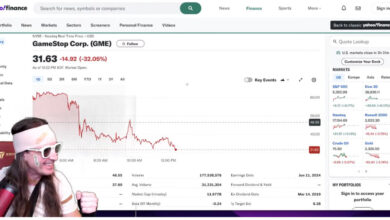Lawmakers Question Bank of America About Leon Black’s Payments to Epstein

A U.S. Senate committee investigating the tax avoidance work that Jeffrey Epstein, the registered sex offender, did for the private equity mogul Leon Black has questioned Bank of America over Mr. Black’s hefty payments to Mr. Epstein, according to a letter viewed by The New York Times.
This month, Senator Ron Wyden of Oregon, the chairman of the Senate Finance Committee, sent the bank a letter asking about the extent of due diligence it conducted before processing $158 million in payments that Mr. Black made to Mr. Epstein from 2012 to 2017 for that tax work.
The letter also asked whether any bank employees had raised concerns about the purpose of those payments. They included fees paid to Mr. Epstein for advising on a sophisticated trust that saved Mr. Black more than $1 billion in taxes. Banks are required to file suspicious activity reports, or SARs, with financial regulators for any transaction they consider questionable.
Mr. Black’s decades-long business dealings and personal relationship with Mr. Epstein have dogged him ever since Mr. Epstein was arrested on federal sex trafficking charges in July 2019. (Mr. Epstein hanged himself in a federal jail a month after his arrest.) Mr. Black, a co-founder of Apollo Global Management, with a net worth of $13 billion, ultimately stepped down from all leadership posts because of the controversy.
In the letter, dated April 4, Mr. Wyden said the committee believed the payments to Mr. Epstein for tax work came from accounts Mr. Black had at Bank of America. He also asked whether any art transactions involving Mr. Epstein and Mr. Black, a well-known art collector, had raised concerns internally.
Whit Clay, a spokesman for Mr. Black, said, “The transactions the committee reviewed were both lawful and conceived, vetted and executed by reputable law firms and tax advisers.” He added that Mr. Black “has paid all taxes owed to the government” and provided detailed information to the committee.”
The role of big banks in facilitating Mr. Epstein’s sex trafficking of teenage girls and young women came under scrutiny last year when JPMorgan Chase agreed to pay $290 million to more than 100 of his victims, and Deutsche Bank reached a $75 million settlement with many of those victims.
Last summer the Senate committee announced that it was investigating the work Mr. Epstein did for Mr. Black as part of an examination of legal “tax dodging” schemes used by the ultrarich. The committee had said it wanted to learn more about Mr. Epstein’s “extraordinary compensation” package and the specific details of the tax avoidance strategies Mr. Epstein designed for Mr. Black.
Mr. Wyden, in the letter to the Bank of America chief executive, Brian Moynihan, said the committee was trying to determine whether the solutions Mr. Epstein came up with to help Mr. Black avoid billions of dollars in taxes were “executed in a manner consistent with federal tax laws.”
A spokesman for Bank of America declined to comment.
When the federal authorities raided Mr. Epstein’s residence in the U.S. Virgin Islands in 2019, shortly after his death, they found a raft of Bank of America bank statements belonging to Mr. Black, according to documents from Mr. Epstein’s estate that were reviewed by The Times. Agents with the Federal Bureau of Investigation spread the bank statements out on the floor to photograph them.
The estate documents reviewed by The Times also show that an employee of Mr. Black’s family office asked Mr. Epstein to review a draft of the billionaire’s 1,700-page federal tax return in 2018. Mr. Epstein, according to the documents, gave him advice on hedge fund investments, distribution of Apollo partnership interests, trust and estate work, and art deals — including the sale of an Alberto Giacometti sculpture in which Mr. Epstein was a stealth buyer.
For many years, Bank of America was the main provider of art loans to Mr. Black, whose $1 billion private collection includes works by Edvard Munch, Leonardo da Vinci, Edgar Degas, Henri Matisse, Joan Miró and Pablo Picasso, according to corporate filings.
In the letter to Mr. Moynihan, Mr. Wyden also asked whether the bank had done any internal review into the sale of artwork that raised concerns about whether “Epstein was acting as a straw purchaser or seller.”
A spokesman for the Senate Finance Committee declined to comment.
Mr. Black initially downplayed his connection to Mr. Epstein. But in 2020, after The Times reported on the extensive financial and personal ties between the two men, Mr. Black asked Apollo’s board to hire the law firm Dechert to review the appropriateness of all his dealings with Mr. Epstein. The 22-page Dechert report, issued in early 2021, cleared Mr. Black of any wrongdoing or knowledge of Mr. Epstein’s predatory sexual abuse. It also concluded that Mr. Epstein gave Mr. Black legitimate tax advice.
Last year, Mr. Black, without admitting any wrongdoing, agreed to pay $62.5 million to the U.S. Virgin Islands to avoid a lawsuit arising from the territory’s investigation into the financing of Mr. Epstein’s sex trafficking operation.



